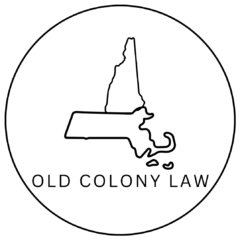A Boston Globe opinion piece on the Massachusetts estate tax:
Voters supported Question 1 on the November ballot, which amends the Massachusetts Constitution by adding a 4 percent tax surcharge on annual income over $1 million.
That’s if you’re still alive.
But you would still be advised not to die here anytime soon. While Massachusetts is only the 37th highest-taxed state in the country overall, it is also one of only 11 states nationwide that tax your estate when you die.
The Massachusetts estate tax applies to all your property, including your house and proceeds from life insurance policies you own to be received by your beneficiaries. While estates less than $1 million are allowed an exemption, the entire exemption evaporates if your estate goes over the threshold, even if by only a few dollars.
The big problem with that today, which comes as a shock to families of the deceased whose assets exceeded $1 million, is that housing prices have accelerated so much that many individuals have been pushed into that “millionaire” category, making them subject to the estate tax.
Here’s what has happened. The average single-family home price in Massachusetts 10 years ago was $381,000, according to MLS PIN records. Today that average sale price is about $733,000. So if a homeowner’s equity is worth that much and they have a 401(k) or other savings of $267,005 or more, they should be prepared for the Commonwealth to receive more and their heirs to receive less. The estate tax rate is graduated, ranging from 0.8 percent for estates in the low seven-figure category up to 16 percent if the estate is worth more.
If you plan to stay in the Commonwealth, the financial implications from the estate tax should be considered. Calculated along with Internal Revenue Service code, a Massachusetts estate valued at, say, $1,050,000 would pay about $20,500 in taxes. An estate valued at about $10 million would owe about $1,067,600.
In fiscal 2021, the state tax raised $788 million, or about 2.2 percent of total revenue, for the Commonwealth.
A current estate tax reform proposal has been a bipartisan priority in the Legislature. It would better keep up with the times, increasing that $1 million exemption that has been in effect for 16 years, during which property values, and consequently estates, have zoomed up in value. But the reform hasn’t passed. That and other measures to improve the state’s competitive position regarding the estate tax were expected to be enacted by the end of the 2022 legislative session on July 31 but were not.
“The failure of the Legislature to pass the much-anticipated estate tax reform proposed by Governor Baker is yet another major disappointment,” blogged Scott C. Cashman, a tax specialist at the law firm Bowditch & Dewey. “Both progressives and conservatives agreed that Massachusetts is in dire need of estate tax reform … and Massachusetts is unduly burdensome in that regard, which is driving retiring residents away.”
A good start would be to raise the exemption from $1 million to $2 million, or even higher, and index it to inflation. And the exempted amount would not be taxed regardless of the estate’s total value.
You can avoid the estate tax by giving to charities, but that doesn’t help your heirs. You can place your assets in a trust, but that requires legal advice to be sure the trust is structured properly to shield assets. Most people, having worked and saved and owning their homes toward the end of their lives, don’t think of themselves as being wealthy enough to need a trust and can be caught off guard.
Only one other state, Oregon, has an estate tax exemption that is still as low as $1 million, but unlike in Massachusetts, only the amount over $1 million is taxed. The Massachusetts estate tax reform legislation and other popular measures were sidelined by the Legislature this session because of a 1986 voter-approved measure that sent $3 billion in excess revenue back to taxpayers. It’s unknown if or when any or all parts of that legislation will pass, but estate tax reform is on hold for now.
If you plan to stay a Massachusetts resident, plan accordingly. Meanwhile, try not to die.
This post is a part of Old Colony Law’s Estate Tax Updates.
